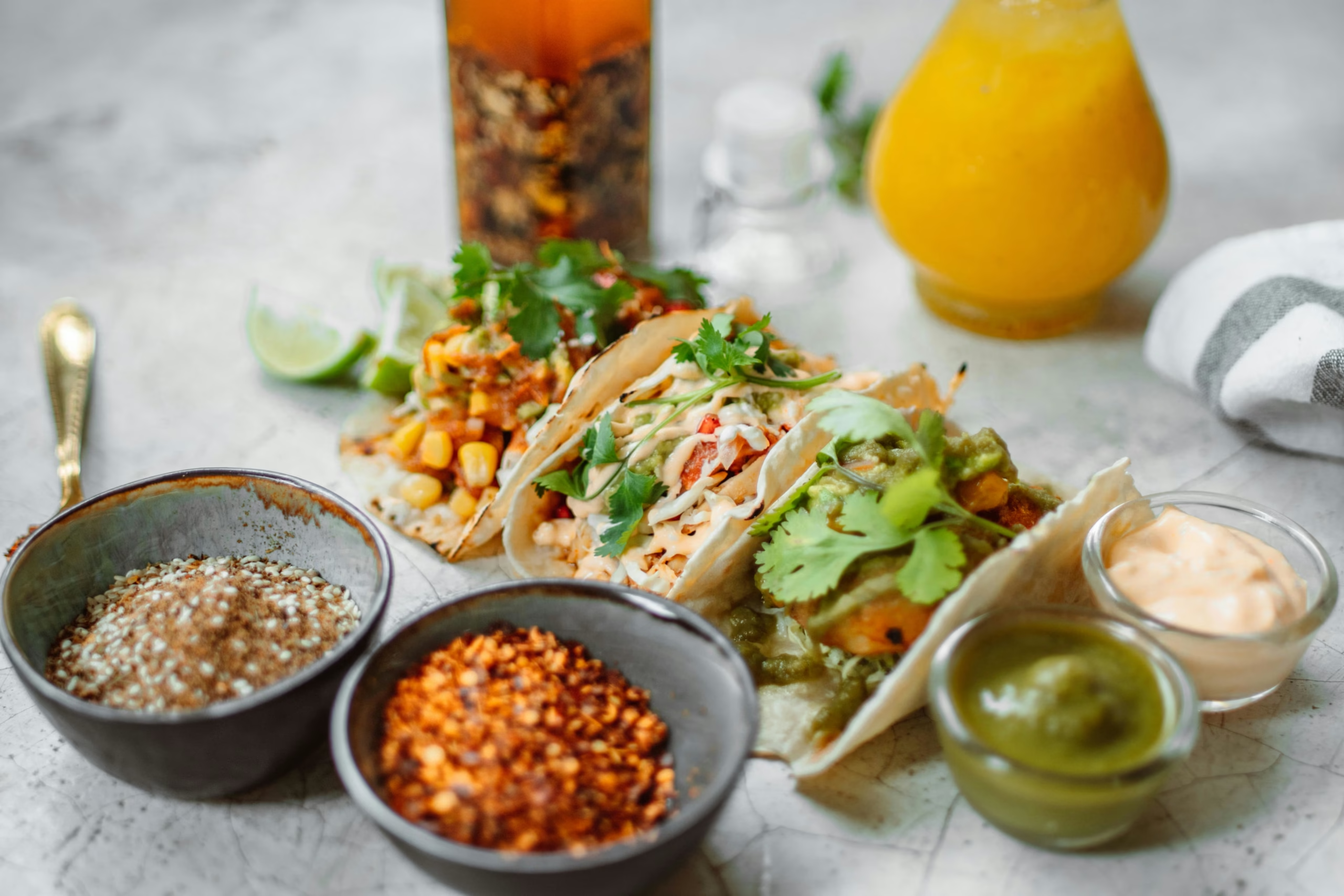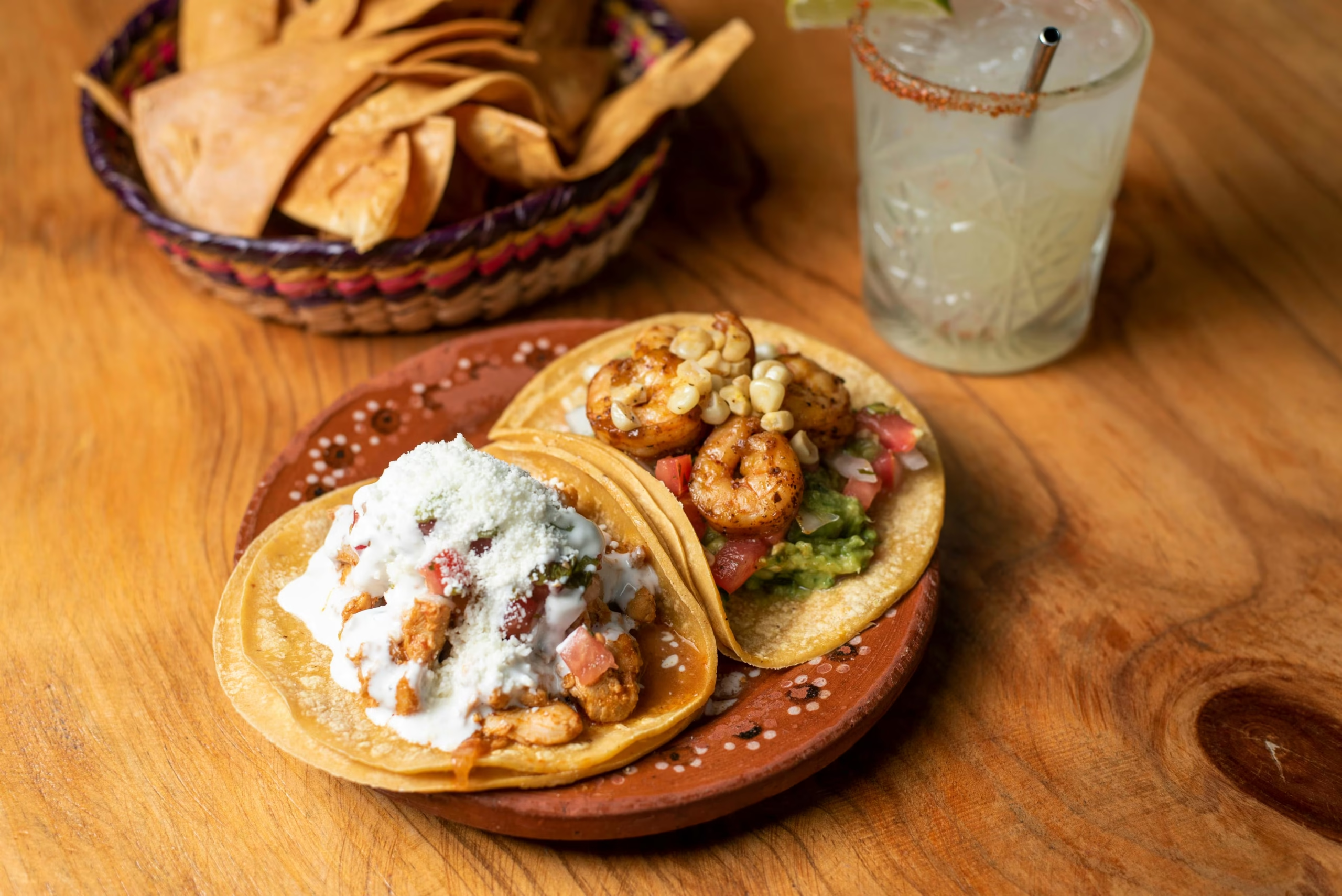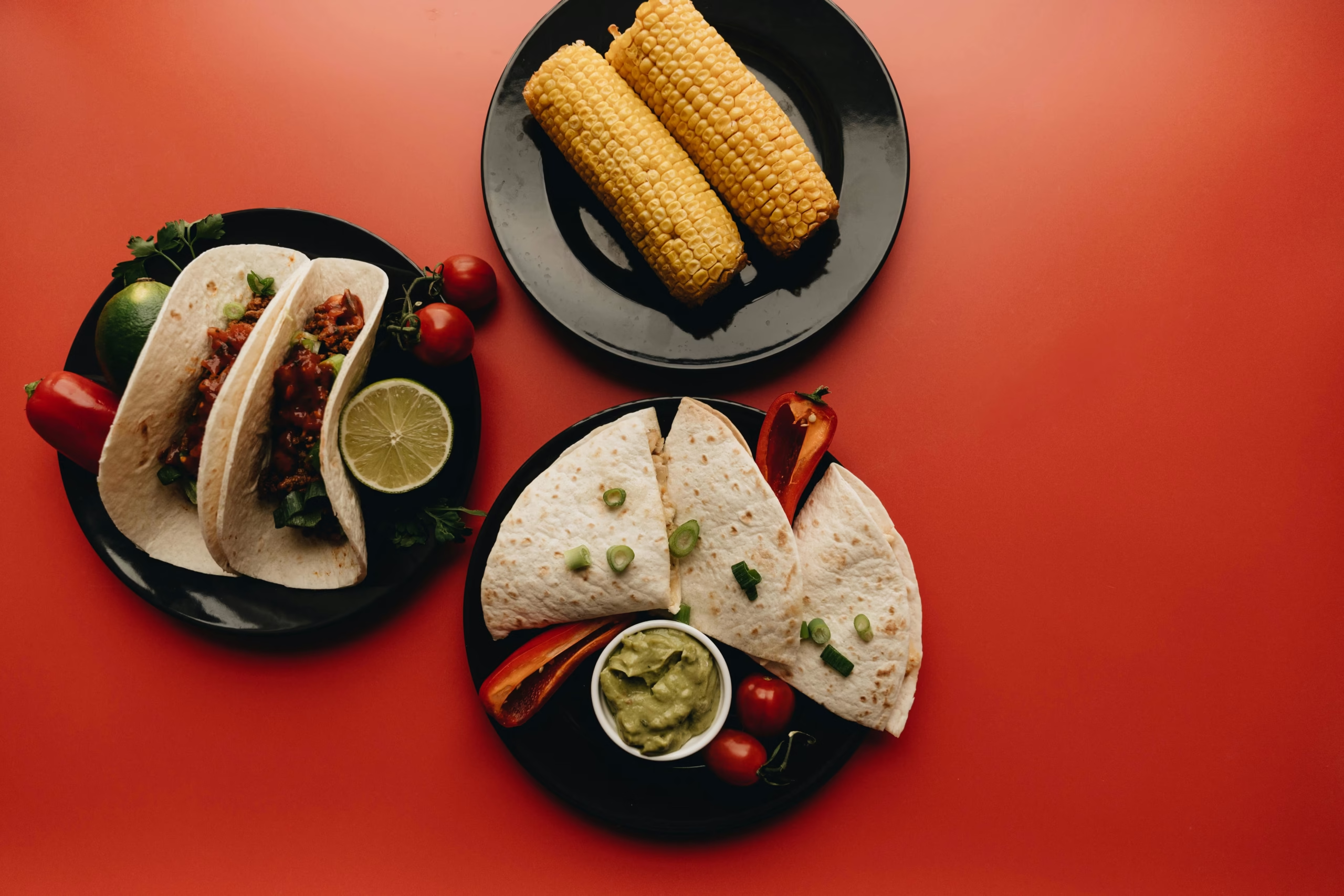Understanding Corn Tortillas

What Are Corn Tortillas?
Corn tortillas have a rich history, originating from Mesoamerican cultures that relied heavily on maize as a dietary staple. Traditionally made with masa harina—a type of corn flour—and water, these tortillas have become a beloved part of dishes like tacos, enchiladas, and quesadillas. Their simple ingredients make them naturally gluten-free, but modern production methods can complicate matters.
- Cultural Significance:
- Corn tortillas are integral to Latin American cuisines, offering both flavor and versatility.
- Traditional Ingredients:
- Masa harina is produced from corn treated with lime (calcium hydroxide) to enhance its nutritional value and texture.
Are Corn Tortillas Naturally Gluten-Free?
Yes, corn itself is naturally gluten-free, making traditional corn tortillas a safe option for those with gluten sensitivities. However, the story doesn’t end there:
- Pure Corn as a Base:
- Cornmeal and masa harina are derived from corn, free from gluten proteins like those in wheat, barley, or rye.
- Modern Additions:
- Some commercially produced tortillas may include wheat flour for added flexibility, turning a gluten-free product into one that contains gluten.
Potential Cross-Contamination Risks
While the ingredients in traditional corn tortillas are gluten-free, cross-contamination can occur during production or packaging, especially when facilities process both gluten-free and gluten-containing products.
- Shared Equipment:
- Factories producing wheat and corn products on the same machinery increase contamination risks.
- Transportation and Storage:
- Storing gluten-free and gluten-containing ingredients together can lead to accidental mixing.
- Lack of Certification:
- Without a gluten-free certification, there’s no guarantee of safe handling practices.
Commercially Available Corn Tortillas

How to Identify Gluten-Free Corn Tortillas
When shopping for corn tortillas, it’s crucial to know how to distinguish gluten-free options from those that may pose a risk. Here are key steps:
- Check for Gluten-Free Labels:
- Look for certifications such as the Gluten-Free Certification Organization (GFCO) seal, which ensures strict compliance with gluten-free standards.
- Read the Ingredient List:
- Authentic corn tortillas typically contain masa harina and water. Watch for additives like wheat flour or other gluten-containing ingredients.
- Look for Allergen Disclaimers:
- Phrases like “may contain traces of gluten” indicate potential cross-contamination, even if the main ingredients are gluten-free.
Best Gluten-Free Corn Tortilla Brands
Several trusted brands produce certified gluten-free tortillas, making it easier for consumers to enjoy this staple safely. Here are some top picks:
- Mission Gluten-Free Corn Tortillas:
- Widely available and praised for their soft texture and versatility.
- Guerrero Corn Tortillas:
- Known for their authentic taste, Guerrero offers gluten-free options perfect for tacos and wraps.
- Food For Life Sprouted Corn Tortillas:
- A healthier alternative, made with sprouted corn for added nutrients and flavor.
- La Tortilla Factory Gluten-Free Corn Tortillas:
- Ideal for both casual meals and creative recipes, these tortillas are light and flexible.
Gluten-Free Tortillas vs. Regular Corn Tortillas
Understanding the differences between certified gluten-free tortillas and standard corn tortillas can help you make informed decisions:
- Production Standards:
- Gluten-free certified products undergo strict testing to ensure they meet safety requirements.
- Ingredient Transparency:
- Regular corn tortillas may include gluten-containing ingredients or lack clarity on cross-contamination practices.
- Price Comparison:
- Gluten-free tortillas often cost more due to rigorous certification processes and dedicated production facilities.
Homemade Gluten-Free Corn Tortillas

Ingredients and Equipment Needed
Making gluten-free corn tortillas at home is surprisingly simple and requires only a few basic ingredients and tools:
- Ingredients:
- Masa Harina: Ensure it’s labeled as gluten-free, such as Bob’s Red Mill or Maseca Gluten-Free.
- Water: Filtered water works best for consistency.
- Optional Add-Ins:
- Add a pinch of salt for flavor or a teaspoon of oil for flexibility.
- Equipment:
- Tortilla Press: Provides even thickness, though a rolling pin works in a pinch.
- Non-Stick Skillet or Griddle: Ensures even cooking without sticking.
Step-by-Step Guide to Making Corn Tortillas
Creating homemade tortillas not only ensures they’re gluten-free but also enhances freshness and taste. Follow these steps:
- Mixing the Dough:
- Combine 2 cups of masa harina with 1 ½ cups of warm water in a bowl. Adjust water as needed to form a soft, pliable dough.
- Shaping the Tortillas:
- Divide the dough into small balls (about the size of a golf ball). Flatten each ball using a tortilla press or rolling pin between two sheets of parchment paper.
- Cooking the Tortillas:
- Heat a skillet over medium heat. Cook each tortilla for 30–60 seconds on each side until lightly browned and puffed.
- Keeping Warm:
- Place cooked tortillas in a clean kitchen towel to keep them warm and pliable.
Benefits of Homemade Corn Tortillas
Making tortillas from scratch offers numerous advantages:
- Complete Control Over Ingredients:
- Avoid hidden gluten or additives by using only trusted gluten-free masa harina.
- Freshness and Flavor:
- Homemade tortillas have a rich, authentic taste that store-bought options often lack.
- Customization:
- Adjust the thickness, size, or flavor to suit your preferences.
Tips for Perfect Tortillas
- Test the Dough:
- If it cracks when pressed, add a small amount of water.
- Consistent Heat:
- Ensure your skillet or griddle maintains an even temperature for uniform cooking.
- Store Properly:
- Wrap cooled tortillas in a damp cloth and store them in an airtight container to prevent drying.
Common Gluten-Free Alternatives to Corn Tortillas
While corn tortillas are a popular gluten-free option, there are other alternatives that cater to various tastes, dietary preferences, and culinary needs. These alternatives bring their unique textures and flavors to the table, offering flexibility for gluten-sensitive individuals.
Rice Flour Tortillas
Rice flour tortillas are a soft and pliable alternative that work well in wraps and tacos. Made from ground rice, they are naturally gluten-free and easy to digest.
- Flavor Profile:
- Mild taste, making them a versatile base for savory or sweet fillings.
- Best Uses:
- Ideal for tacos, fajitas, and lighter wraps.
- Popular Brands:
- Look for certified gluten-free options like BFree or Mission Rice Flour Tortillas.
Cassava Flour Tortillas
Cassava flour tortillas are grain-free, making them suitable for paleo and gluten-free diets. Made from the root of the cassava plant, they have a unique, slightly nutty flavor.
- Nutritional Benefits:
- Rich in fiber and free of grains, nuts, and dairy.
- Texture:
- Soft and flexible, ideal for folding or rolling.
- Best Pairings:
- Tacos, burritos, or even as a substitute for flatbreads.
Almond Flour Tortillas
For those on a keto or low-carb diet, almond flour tortillas are a fantastic option. They are protein-rich and have a slightly nutty flavor.
- Key Features:
- High in healthy fats and low in carbohydrates.
- Uses:
- Excellent for quesadillas, breakfast wraps, and even dessert crepes.
- Availability:
- Siete Almond Flour Tortillas are a widely loved brand.
Leafy Wraps and Lettuce Alternatives
If you’re looking for a low-calorie and ultra-light option, lettuce leaves or other leafy greens like collard greens can be a creative alternative.
- Health Benefits:
- Packed with vitamins and minerals while being naturally gluten-free.
- Best Choices:
- Romaine or iceberg lettuce for their sturdiness and crunch.
- Usage Ideas:
- Perfect for wraps, tacos, or bun replacements.
Chickpea Flour Tortillas
Chickpea flour tortillas are another alternative that offers a boost of protein and fiber. Made from ground chickpeas, they have a slightly earthy flavor.
- Taste:
- Earthy and slightly nutty, complementing bold fillings like spiced vegetables or grilled meats.
- Flexibility:
- Sturdy and foldable, making them a good choice for burritos or stuffed wraps.
FAQs About Corn Tortillas
Do All Corn Tortillas Contain Gluten?
Not all corn tortillas are inherently gluten-free. While traditional recipes use masa harina and water, some modern versions include gluten-containing ingredients, such as wheat flour, to improve flexibility or texture. Always check ingredient labels and look for gluten-free certifications to ensure safety.
How Can I Ensure a Corn Tortilla is Gluten-Free?
- Look for Gluten-Free Certification:
- Trusted seals like the Gluten-Free Certification Organization (GFCO) logo guarantee compliance with strict standards.
- Check Ingredient Lists:
- Avoid products with additives like wheat flour or unspecified starches.
- Choose Trusted Brands:
- Opt for brands known for their gluten-free practices, such as Mission or Guerrero.
Are Corn Tortillas Healthier Than Flour Tortillas?
Yes, corn tortillas are generally considered healthier than flour tortillas due to their lower calorie and carbohydrate content. They also contain more fiber, essential vitamins (like B6), and magnesium, which support overall health.
What Are the Risks of Cross-Contamination in Store-Bought Corn Tortillas?
Cross-contamination can occur during processing or packaging. Common risks include:
- Shared Equipment:
- Facilities producing both gluten-free and gluten-containing products.
- Improper Storage:
- Storing tortillas near gluten-containing products can lead to contamination.
- Lack of Gluten-Free Certification:
- Without certification, it’s hard to verify safe production practices.
Are Gluten-Free Corn Tortillas Suitable for All Diets?
Most gluten-free corn tortillas fit a wide range of diets, including gluten-free, vegetarian, and vegan. However, some may not align with specific diets, like keto, due to their carbohydrate content. For low-carb diets, almond or cassava flour tortillas might be better options.
What Are the Best Brands of Gluten-Free Corn Tortillas?
- Mission Gluten-Free Corn Tortillas:
- Widely available and certified gluten-free.
- Guerrero Corn Tortillas:
- Known for their authentic taste and gluten-free varieties.
- Siete Grain-Free Tortillas:
- A versatile option for those seeking grain-free alternatives.
How Should Corn Tortillas Be Stored?
- Refrigeration:
- Keep tortillas in the fridge to maintain freshness and prevent mold.
- Freezing:
- Freeze tortillas in airtight bags to extend their shelf life. Thaw them at room temperature before use.
- Reheating Tips:
- Use a skillet or microwave to restore flexibility and warmth.